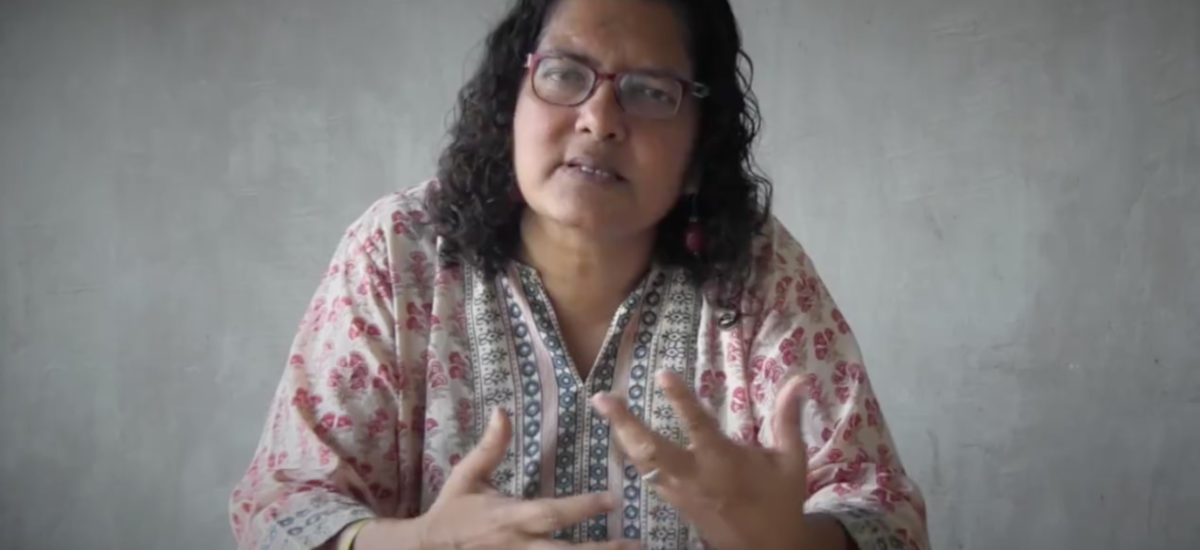Sri Lankans do not want to experience war again. This is true across all ethnic groups when the Consultation Task Force for Reconciliation Mechanisms (CTF) held public consultations across the country, between June and September in 2016. The resulting report, some 1000 pages long across two volumes, has made the news largely in terms of accountability, with nationalists raising objections to any international participation in the transitional justice process.
However, the submissions made by over 7,300 citizens across Sri Lanka, including from the military, were in fact far more nuanced and covered a wide spectrum of issues, as Kumudini Samuel, member of the Zonal Task Force – Western Province said in an interview with Groundviews. There were 15 Zonal Task Forces in total, comprised of “locally respected and appropriately skilled people from the relevant districts or provinces”, given the role of recording the views of the public without bias, in order to ensure that public opinion was accurately represented in the final report.
The issue of economic deprivation was also raised – the people making submissions included those who had been displaced, with little to no assistance from the State. The plight of the female headed households was another issue that was flagged, with many of them living in serious deprivation with little to no State assistance.
The CTF even included submissions from groups hostile to their very presence. In Kalutara, a group of Buddhists monks visited the CTF sittings charging that the entire process was a “witch-hunt against the military” and was only focused on the North and East. “They wanted us to leave” Samuel said. “They felt the entire process of seeking reconciliation was politicised and politically motivated.” However, upon discussion they agreed to return and make their own submission, which included the discrimination Buddhists faced in Jaffna by not being allowed to set up places of worship there. “We raised the issue that all places of worship should be protected, not just Buddhists. They understood and agreed that the reconciliation was important and all religions should receive such protection” Samuel said.
There were also specific recommendations made on each of the four transitional justice mechanisms (The Office of Missing Persons, the Truth, Justice and Reconciliation Commission, the judicial mechanism with special counsel and the Office for Reparations).
Memorialising held particular importance for many. “For reparations, it was important to have acknowledgement of what happened. A village monument people could go to – even public spaces such as roundabouts could be used for memorialising, or gardens and parks,” Samuel said.
It was also important that all mechanisms should have the voice of the marginalised – including women, families of the disappeared, religious and ethnic minorities – and not just elite groups from Colombo, the participants said.
Despite all the recommendations made, with a diverse range of opinions flagged across all communities under each of the four pillars, the media has yet to read the report in full, and as such have not framed it in a positive light.
“People need to pick up on what is doable, not take one piece out of context and harp on that,” Samuel said.
“The media is focused on sound-bite publicity,” she added. As such even during the sittings, there was often little to no media participation. This was compounded by the CTF’s own lack of funds to carry out publicity, though there were some limited successes. “Once, we did manage to get radio publicity of the sittings, when we were at the Ja-Ela Divisional Secretariat office – and a man who was on the bus actually heard the report, got down from the bus and came to make a submission to us about the Arantalawa massacre” Samuel said.
The State too has much more to do in terms of support and buy in. The absence of the President and the Prime Minister at the official handover of the report on January 3 was a problem, given that they were elected into office promising transformation, she added.
(The event was initially planned for late 2016, but was rescheduled for early 2017 as it was indicated that both the President and Prime Minister would be present to receive it.)
As such, Samuel said it was important that media and civil society read the report more fully to understand the different issues raised.
“We have seen continued cycles of violence – from the 1971 insurrection, to the 80s, 90s and 2000s. How do we begin to address this? We have a responsibility, that we don’t lose this historic moment. We may never have this opportunity again” Samuel said.
If you enjoyed this article, you might find “Deconstructing the CTF report” and “Wijeyadasa Rajapaksha’s “lack of confidence” in the CTF: Revengeful and racist” enlightening reads.

